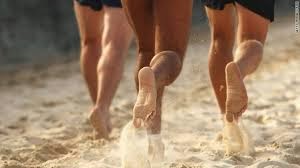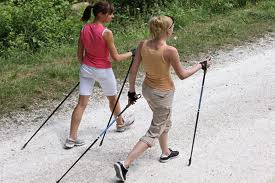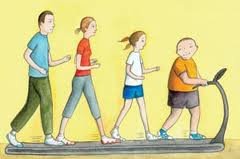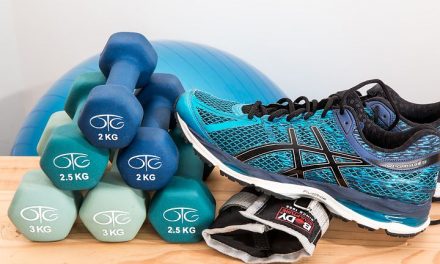Barefoot running has become popular in the running world in the last few years. Advocates of barefoot running feel that since our bodies were evolutionarily designed to run long distances, it must be better for us to run barefoot as nature intended us to do. So, what does the science tell us about barefoot running – is it really good for us, or does it set us up for further injury?
Let me ask first of all, were we actually designed to run long distances in the first place? The theories are actually pretty convincing in this regard. Some humans in the world still use our design for its proposed main evolutionary purpose of persistence hunting (check out my previous blog post on this, along with David Suzuki’s documentary on it, here).
As for whether running bare foot is good or bad for us, a recent review summaries the research currently available on the topic. The review is extremely detailed and I will be the first to admit that I am not a biomechanics expert – for those who want the in depth discussion, I encourage you to read the full article. However, I would like to share the bottom lines of the article with you, as the question of barefoot running has become relevant for many people who run and aren’t sure what is best.
The bottom lines are:
1. There is still very little known about barefoot running and its relationship with injury and performance; whether barefoot running prevents or promotes injury is still unclear. As the authors note,
Follow me on twitter! @drsuepedersen












